How Nest i/o is helping budding entrepreneurs launch startups
The powerhouse behind the incubator talks promoting a startup culture in Pakistan
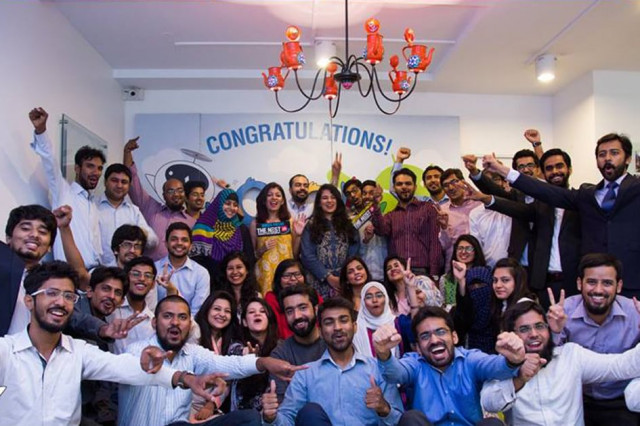
Picture of passing out ceremony of third batch of startups. PHOTO COURTESY: THE NEST i/O
Compared to a technological hub like Singapore, these achievements may seem insignificant but for a country like Pakistan where the entrepreneurship ecosystem is not very developed and the startup culture is still in its nascent form, it is a sign of a bright future.
Among the many forces helping these startups reach their true potential is The Nest i/o, a Google-backed incubation centre. Since its launch in 2015, 79 startups have graduated from the incubator, while an additional 18 are currently being incubated and will be graduating soon.
In an exclusive talk with The Express Tribune, Jehan Ara, the powerhouse behind The Nest i/o, defines startups as “a company with high growth potential. The flipside of this high growth potential is that they are also inherently riskier, more so than traditional businesses. Startups take on market or social problems and focus on delivering value.”
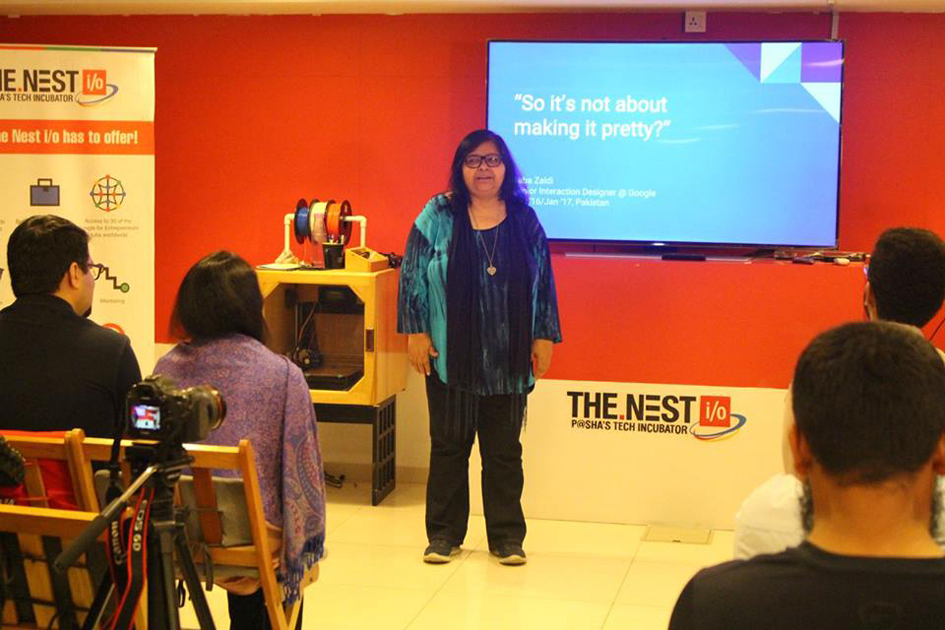 Jehan Ara, the powerhouse behind The Nest i/ o. PHOTO CURTESY: THE NEST i/O
Jehan Ara, the powerhouse behind The Nest i/ o. PHOTO CURTESY: THE NEST i/OHowever, despite the risk factor, more than 65 of the startups that graduated from The Nest i/o are operating successfully, a testament to the strength and value of the programme.
Counting their successes, Jehan Ara says, “Twelve of our startups were able to raise funding in the past two years. Several of our graduates continue to grow fast and are well on their way to becoming household names. Some of our success stories that many would be familiar with include Sukoon.com.pk, MandiExpress, WonderTree and Sheops.”
How programme is helping budding entrepreneurs
Explaining how the incubator is helping promote a startup culture in the country, Jehan Ara says, “The Nest i/o provides budding entrepreneurs with space, testing facilities, and a rigorous business & technology curriculum in a four month incubation program. We provide them access to mentors including one-on-one mentoring opportunities; as well as connect them to potential investors who may then go on to invest in their startups.”
Beside this, the startups also benefit from a host of national and international partnerships that The Nest i/o enjoys with the likes SendGrid, StartupChile and StartupIstanbul. “The Google for Entrepreneurs global partner network provides immense opportunities for those who are looking to expand beyond the borders of Pakistan,” she adds.
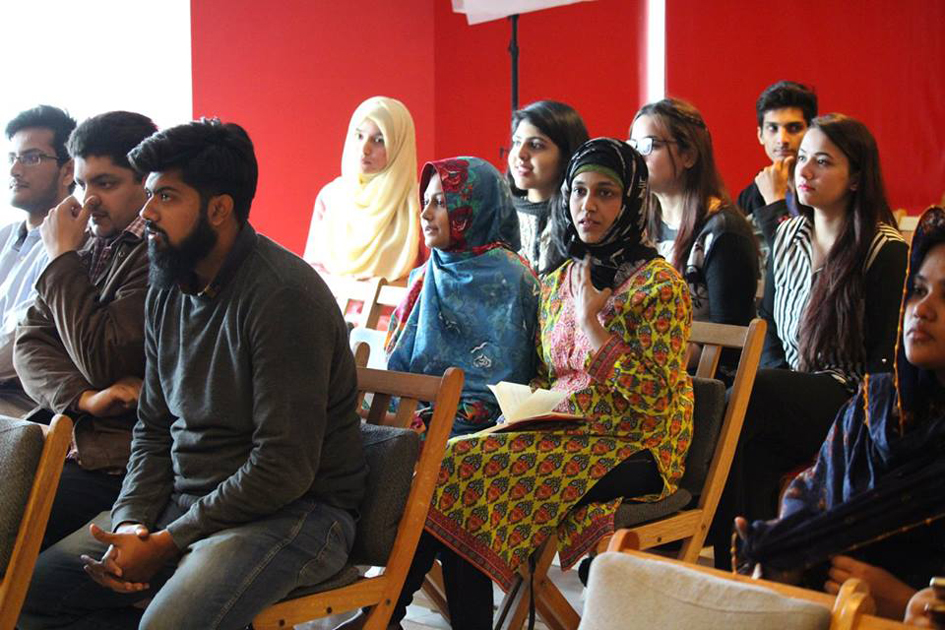 Orientation of fifth batch of startups at The Nest i/o. PHOTO COURTESY: THE NEST i/O
Orientation of fifth batch of startups at The Nest i/o. PHOTO COURTESY: THE NEST i/O“Most importantly, we provide them with a community of not only mentors, advisors and investors but also founders just like them. Together, they connect and help each other solve problems. Our community differentiates our incubator and has helped us achieve what we have built today.”
Even after graduating from the incubator, the startups remain part of the Nest i/o community, which has grown to more than 350 individuals and continues to do so. “We continue to support them wherever they may go,” says Jehan Ara.
In her opinion, the composition of the team defines a startup’s future. “If the team has an aligned vision, a shared mission and has the temperament to survive the rollercoaster journey that is a startup, they are more likely to do well,” she shares.
The first step to success
The stigma surrounding failing at something is stopping young entrepreneurs from venturing out and trying new things, Jehan Ara says. “In our society, if you fail people laugh at you and make you feel like you can’t raise your head ever but if you look globally, most of the successful entrepreneurs have failed at something at least once if not more and they learn from that.”
In order to make startups comfortable with the idea of failure, The Nest i/o runs a five-day boot camp, which deals with the idea of failing, before the incubation process starts.
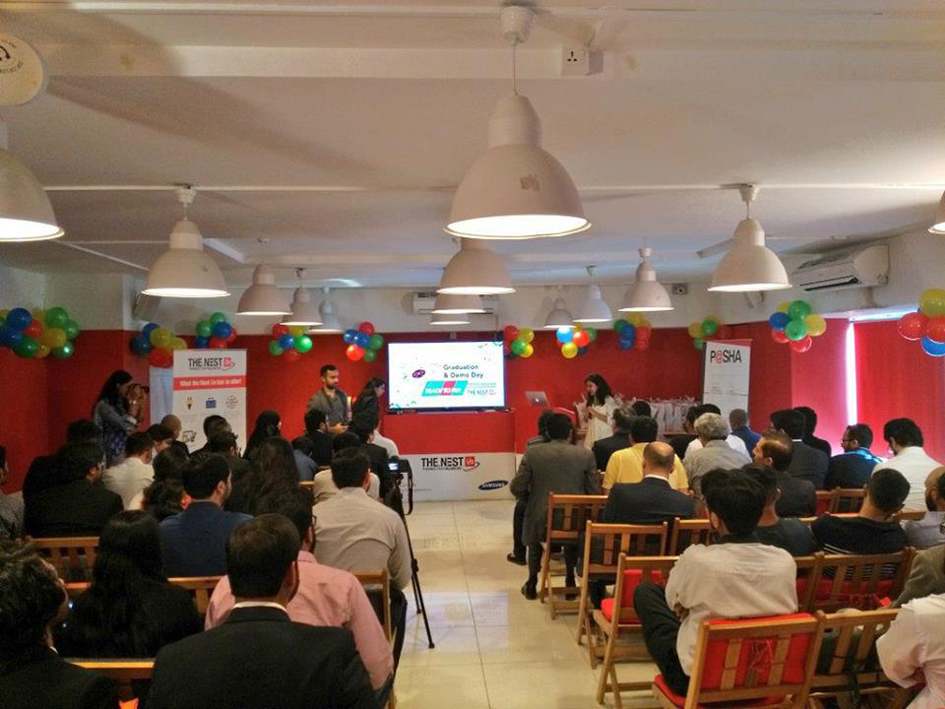 Passing out ceremony of fourth batch of startups at The Nest i/o. PHOTO COURTESY: THE NEST i/O
Passing out ceremony of fourth batch of startups at The Nest i/o. PHOTO COURTESY: THE NEST i/O“We tell our participants, you could fail at any time; you could fail as soon as you start and go to a customer to validate your idea and figure out that what you thought was cool isn’t appealing to customers, or even at a later stage,” she says, adding that the earlier one fails, the better it is for them as they can learn from it and take a direction that is more likely to succeed. Jehan Ara argues, however, that failure should not dishearten or discourage and the startup in question must be willing to go back to the drawing board and change their product/idea, turning it into a product that people want. “[Startups] need to realise that failure is part of the journey. If they are not ready take that risk, then should not pursue this path.”
Is startup culture killing real entrepreneurship?
Many feel that the startup culture is killing real entrepreneurship as it has seemingly become a way make a quick buck. They argue that it encourages young entrepreneurs to sell their ideas as soon as they get some traction and exit instead of continuing and establishing what they have started.
However, Jehan Ara dismisses these concerns as not entirely true saying there are people who are passionate about one particular idea or problem and will spend a majority of their years on it. “They become experts in that area and continue to build their startups in that field.”
But not everyone is built like that. “There is also room for people who are passionate about building successful businesses and after taking their startup to a certain level will exit and start to work on the next opportunity,” she says, adding that “there is room for that too and you need a good mix of individuals who have good entry and exit opportunities for a great ecosystem.”
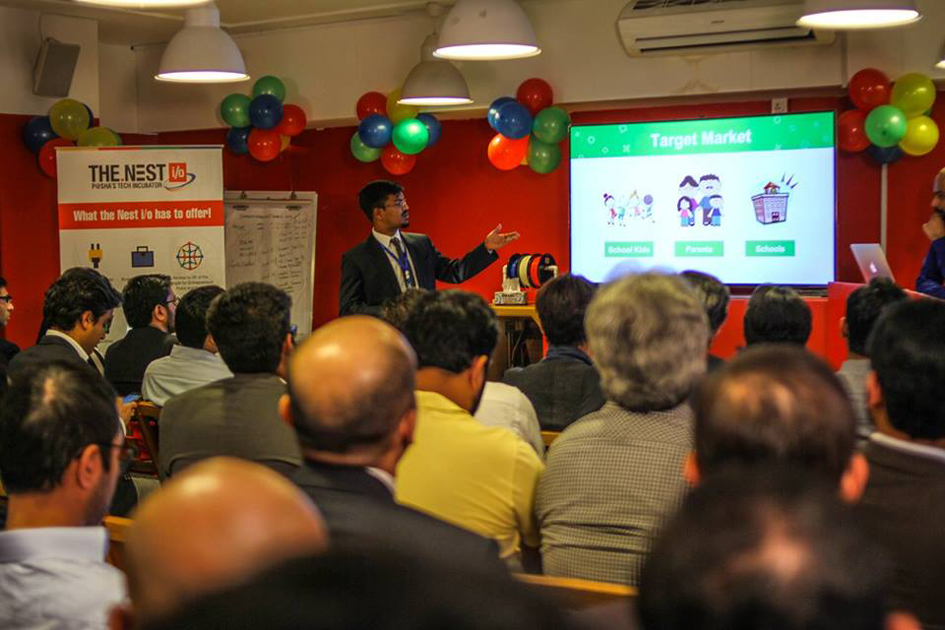
Explaining how selling their product or idea to bigger fish in the market is a success in itself, Jehan Ara says, “A person who starts a company has every right to take it whatever level they want to. If somebody creates a tech product and it is acquired by Facebook or Google, that’s already a success in their entrepreneurial journey.”
Taking it a notch further, Akash Shaikh, who is a program manager at The Nest i/o, says exiting in a way promotes entrepreneurship culture. “Sometimes, selling your company is making sure that it reaches a wider net of people, creating a bigger impact,” he says, adding that an entrepreneur can take his company to a certain level with limited resources. “But if a company with a global distribution network comes in and invests in the product, that is definitely the thing to go for as it would enable you to reach more people.”
Sindh far behind Punjab in promoting startups
While lauding Punjab Information Technology Board’s (PITB) efforts to promote and facilitate startups, The Nest i/o head lamented the fact that despite Karachi being the economic hub of the country, the Sindh government has not yet actively started supporting the startup ecosystem in the province.
“We believe it would certainly help if the Sindh government started facilitating startups. However, they need to work on a strategy that will work for Sindh before jumping onto it,” she explains.
The Nest i/o head emphasises that what is more critical is support from the federal government. “There is a need for policies at the federal level that support the growth of the startup eco-system. This includes the tax structure, ease-of-use of reporting, etc,” she stresses.
However, Jehan Ara feels there is a light at the end of the tunnel as the government is looking to formulate a policy for startups in the country.
“The new CEO of the National ICT R&D Fund Yousuf Hussain is looking to put together a policy document for startups that he’s going to propose to the government,” she says, adding that following the way Indian Prime Minister Narendra Modi facilitated statups, he wants to give startups some leverage, for instance, tax holidays for the first three years.
Shedding light on how this proposed holiday would help bolster entrepreneurship culture, Jehan Ara says, “A startup has no chance of building a business if from day one they have to pay so many taxes. Any sector that has startups, need these kind of [tax] breaks, if we want entrepreneurship to flourish.”
Sky’s the limit
Responding to a question on what The Nest i/o hopes to achieve this year, Jehan Ara reveals that the incubation centre is looking to build links with investors to further grow the ecosystem by providing funding opportunities for startups and enabling investors to gain access to good investment opportunities.
“We are also looking to deepen the ecosystem by increasing our partnerships especially with corporations and established businesses that want to support innovation as well as gain access to the talent and technology that these startups are building,” she says.
Further, The Nest i/o has some programmes designed to promote entrepreneurship that will be launched in the coming year including a series of workshops in partnership with universities in Sindh to promote understanding and pursuance of technology entrepreneurship.
Revealing their ambitious long term plans, The Nest i/o head said, “In the next five years, we are looking to expand our footprint to from just Karachi to perhaps physical venues in different cities of Pakistan. We are also seeking to build an accelerator programme, which is the next stage for startups after they complete an incubation cycle.”
Advice for budding entrepreneurs
Our advice would be to validate the solution entrepreneurs are working on as soon as possible. Far too many individuals work on an idea that may be interesting but not what customers are willing to spend money on.



















COMMENTS
Comments are moderated and generally will be posted if they are on-topic and not abusive.
For more information, please see our Comments FAQ